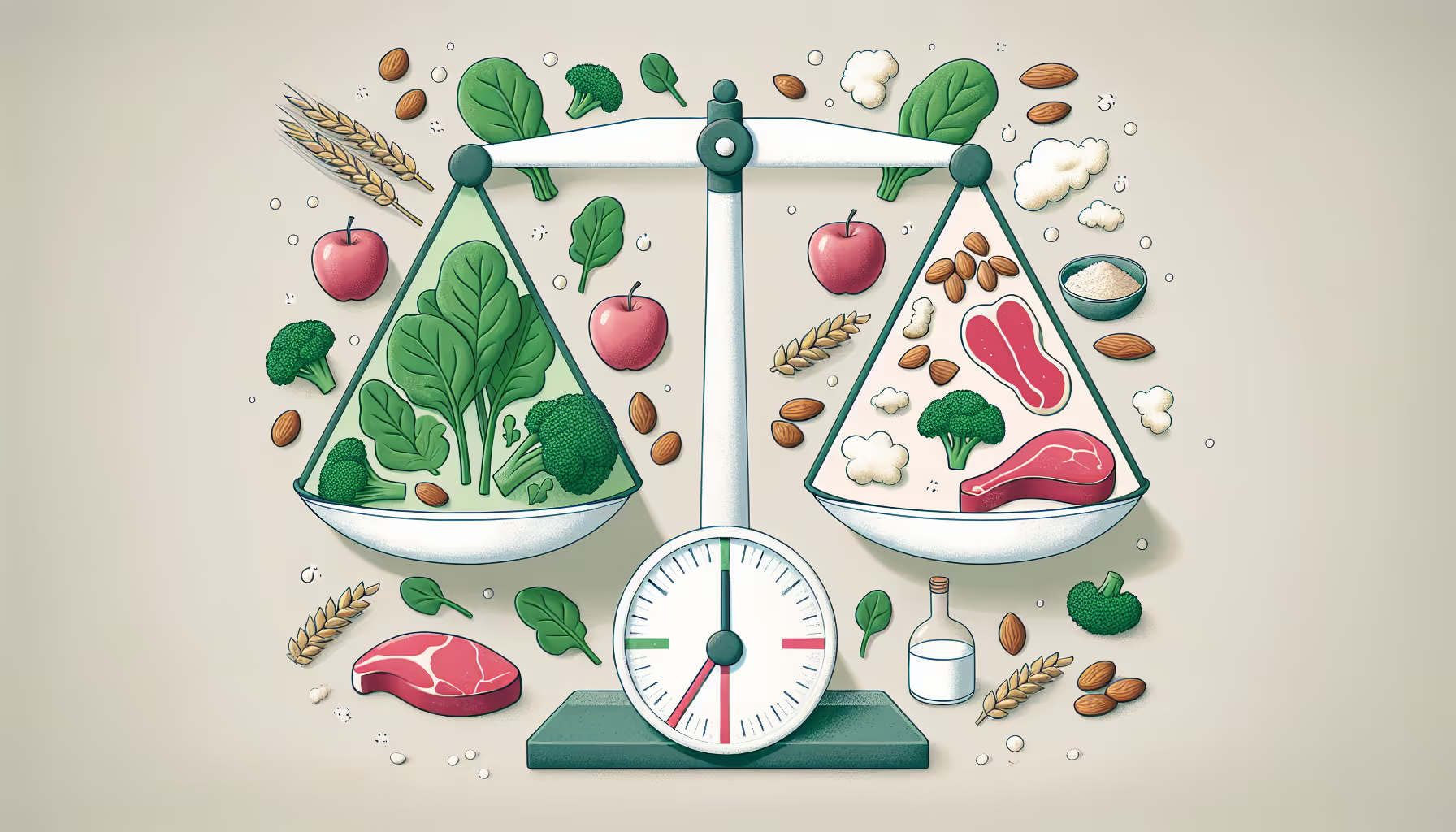Maintaining a balanced pH level in the body is crucial for optimal health, but what happens when you go overboard with alkalinity? While an alkaline diet has its benefits, excessive alkalinity can pose risks. A study by the National Center for Biotechnology Information (NCBI) indicates that a balanced pH level in the blood ranges from 7.35 to 7.45, and any deviation can disrupt normal physiological functions (Schwalfenberg, 2012). This article explores the risks of excessive alkalinity and offers practical tips on how to avoid them.
Understanding Alkalinity
Alkalinity refers to the capability of water or any solution to neutralize acids. In the context of the human body, it means maintaining a pH level that is slightly alkaline, typically around 7.35 to 7.45. This balance is necessary for various bodily functions, including enzyme activity, oxygen transport, and overall metabolic processes.
Keep in mind that while the idea of maintaining an alkaline state is beneficial, it's essential not to overdo it. The body is designed to operate within a specific pH range, and any significant deviation—whether too acidic or too alkaline—can disrupt normal physiological functions. As Kathleen Zelman, MPH, RD, LD, a registered dietitian nutritionist, notes, "You can't change the alkaline of your blood. While following an alkaline diet may be able to change the pH levels of your pee, this measure is not a reflection of the pH of your blood" (WebMD, 2022).
Understanding this balance is the first step in preventing the risks associated with excessive alkalinity.
Common Causes of Excessive Alkalinity
One common cause of excessive alkalinity is the overconsumption of alkaline foods and drinks. While it's good to include fruits, vegetables, and alkaline water in your diet, consuming them in excessive amounts can lead to an imbalance.
For instance, drinking too much alkaline water can disrupt the natural acidity of the stomach, affecting digestion. According to Healthline, overconsumption of alkaline water can result in a condition called metabolic alkalosis, which can cause nausea, vomiting, hand tremors, and muscle twitching (Healthline, 2022).
Another cause can be the misuse of alkaline supplements. Many people turn to supplements to boost their alkaline levels quickly, but this can backfire if not monitored correctly. Note that supplements should only be used under medical supervision to avoid unnecessary complications. Additionally, certain medical conditions and medications can also contribute to an imbalanced pH level, leading to excessive alkalinity.
Symptoms and Health Risks of Excessive Alkalinity
Excessive alkalinity, or alkalosis, can manifest through various symptoms. Common signs include muscle twitching, hand tremors, and muscle cramps due to the imbalance in electrolytes like calcium and potassium.
You might also experience nausea, vomiting, and confusion. In severe cases, alkalosis can lead to arrhythmias or irregular heartbeats.
A big plus of recognizing these symptoms early is that you can take corrective measures before the condition worsens. For more information on how to maintain a balanced pH level, check out our article on Maintaining a Healthy pH Balance: Tips and Tricks.
Being informed can help you take proactive steps to avoid the health risks associated with excessive alkalinity.
Foods and Drinks that Contribute to High Alkalinity
Several foods and drinks can contribute to high alkalinity in the body. Leafy greens like spinach and kale, fruits like watermelon and mango, and nuts like almonds are all alkaline-forming foods.
While these are generally healthy, consuming them in excessive amounts can push your body towards an overly alkaline state.
Alkaline water is another contributor. While it can be beneficial in moderate amounts, drinking it excessively can neutralize the stomach acid needed for proper digestion.
Side note: it's essential to balance your intake of these alkaline foods and drinks with other nutrient-rich options to maintain a well-rounded diet. Moderation is key to preventing excessive alkalinity.
Practical Tips to Maintain Balanced pH Levels
Maintaining balanced pH levels is all about moderation and variety in your diet. One advantage of a balanced diet is that it naturally helps maintain your body's pH without the need for extreme measures.
Incorporate a mix of alkaline and acidic foods to keep your diet diverse and balanced.
Hydration is crucial. Drink plenty of water, but be cautious with alkaline water. A benefit here is that regular water can help flush out toxins without disrupting your stomach's natural acidity.
Also, consider consulting a healthcare provider before making significant changes to your diet or starting new supplements. They can offer personalized advice based on your specific health needs.
When to Seek Professional Help
If you experience persistent symptoms like muscle cramps, nausea, or confusion, it's essential to seek professional help. These could be signs of alkalosis, which requires medical attention.
One advantage of consulting a healthcare provider is that they can run tests to determine your body's pH levels and provide appropriate treatment.
Early intervention can prevent complications. Note that ignoring the symptoms can lead to severe health issues, including cardiovascular problems. For more insights on when to seek professional advice, refer to our article on Can Your Body Have Too Much Alkaline? Understanding the Balance.
Being proactive about your health can make a significant difference.
Conclusion
In conclusion, while maintaining an alkaline diet has its benefits, it's crucial to avoid excessive alkalinity. Understanding the balance, recognizing the symptoms, and taking preventive measures can help you maintain optimal health.
For more tips on keeping your diet balanced and healthy, check out our guide on Maintaining a Healthy pH Balance: Tips and Tricks.
Remember, the key to a healthy diet is moderation and variety. By being mindful of your food and drink choices and seeking professional advice when needed, you can enjoy the benefits of an alkaline diet without the risks of excessive alkalinity.
References
- Schwalfenberg, G. K. (2012). The Alkaline Diet: Is There Evidence That an Alkaline pH Diet Benefits Health? Journal of Environmental and Public Health. Retrieved from https://www.ncbi.nlm.nih.gov/pmc/articles/PMC3195546/
- Healthline. (2022). Alkaline Water: Benefits and Risks. Retrieved from https://www.healthline.com/health/food-nutrition/alkaline-water-benefits-risks
- WebMD. (2022). Alkaline Diet Plan Review: Does It Work? Retrieved from https://www.webmd.com/diet/alkaline-diets






